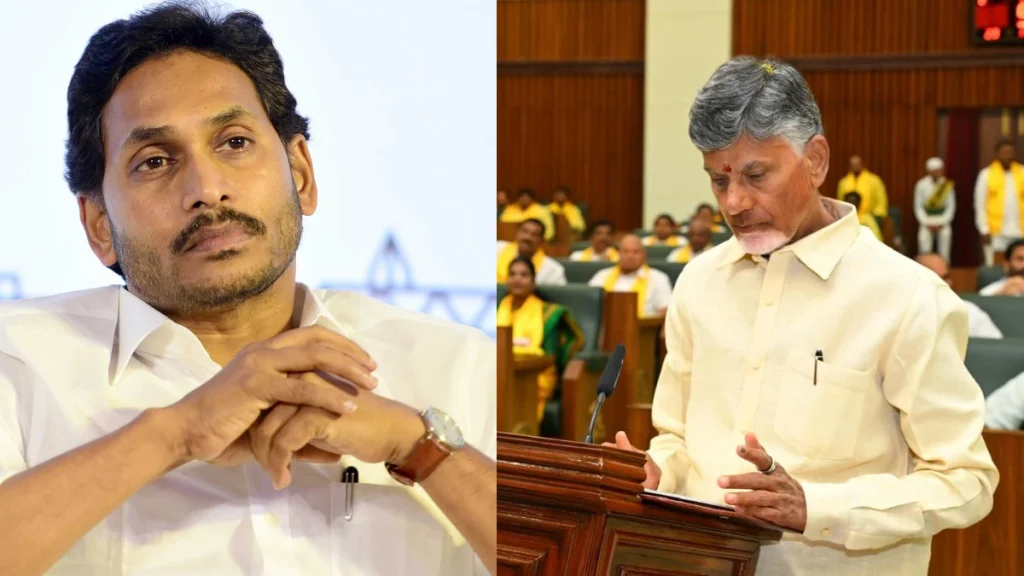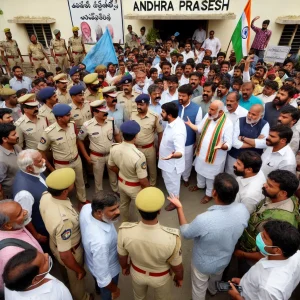
The ongoing allotment of liquor shops in Andhra Pradesh under the new liquor policy introduced by Chief Minister N. Chandrababu Naidu has sparked widespread debate. The state government has notified 3,396 liquor shops, and the licenses are being allotted through a lottery system. The new policy is set to effect on October 16, with tenders for the liquor shops generating a revenue of ₹1,798 crore.
A total of 89,882 applications were received for the allotment of these shops, with an average of over 25 applications per shop. Tirupati district saw the highest number of shops notified at 227, while Alluri Sitaram Raju district had the lowest at 40. The most applications were received in the NTR district, where 113 shops attracted 5,825 applications.

The policy, however, has drawn sharp criticism from the opposition, particularly from former Chief Minister Y.S. Jagan Mohan Reddy, who has labeled it corrupt and dangerous for the future of the state. Jagan has accused the Naidu government of benefiting a liquor mafia and indirectly profiting from the control of liquor sales, alleging that the new policy prioritizes private interests over public welfare.

In a series of pointed questions posted on social media, YSJagan highlighted several concerns like
Liquor Mafia Empowerment: He alleges that the new policy fosters a liquor mafia, transferring control of government shops to private entities, and enabling rampant price inflation and illegal profits.
Systemic Corruption: He claims the policy promotes corruption, with government officials colluding with liquor vendors to share commissions, undermining state revenue.
Misleading Revenue Claims: Jagan asserts that the policy misleads the public with promises of lower prices, while actual sales increase profits for distilleries linked to Naidu.
Loss of Regulatory Control: The shift to private sales erodes government oversight, compromising responsible liquor sales and public health measures.
Increased Accessibility of Alcohol: He warns that the policy revives conditions similar to the Madhya Andhra Pradesh era, with illegal outlets proliferating near schools and temples.
Job Losses: The closure of government-run liquor shops has resulted in 15,000 job losses, further impacting livelihoods.
Threat to Public Welfare: Jagan cautions that the policy jeopardizes the state’s future, adversely affecting youth, healthcare, and education sectors.
The new policy has triggered a political storm, with Jagan demanding immediate corrections, warning that failure to do so would prompt public agitation. CM Chandrababu Naidu, however, has defended the policy, stating that it promotes transparency through a lottery-based selection of vendors and increases revenue for the state. He has rejected the claims of corruption and syndicate formation, asserting that the policy is designed to streamline liquor sales while boosting the state’s income.
As the new policy comes into effect, all eyes are on the potential consequences and whether the opposition’s concerns will fuel further political tensions in Andhra Pradesh.




